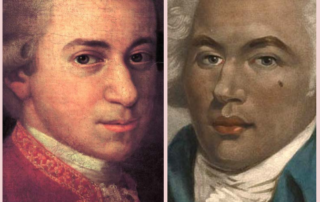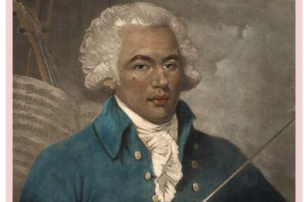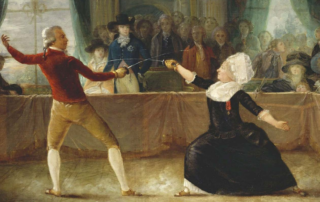Bologne and Mozart
Did Joseph Bologne, Chevalier de Saint-Georges and Wolfgang Amadeus Mozart ever meet? Contemporaries, both prodigies and musical savants, one French and the other Austrian, Bologne and Mozart did indeed cross paths at least once in 1778, for about three months when they both were hosted in the French quartier, Chaussée d’Antin, in Paris. Mozart lived at the home of Friedrich Melchior, Baron von Grimm, who was also well acquainted with Bologne. Joseph Bologne lived across the courtyard, working as the music director of Madame de Montesson’s private theater, which the two residences shared. Bologne was over a decade Mozart’s [...]





